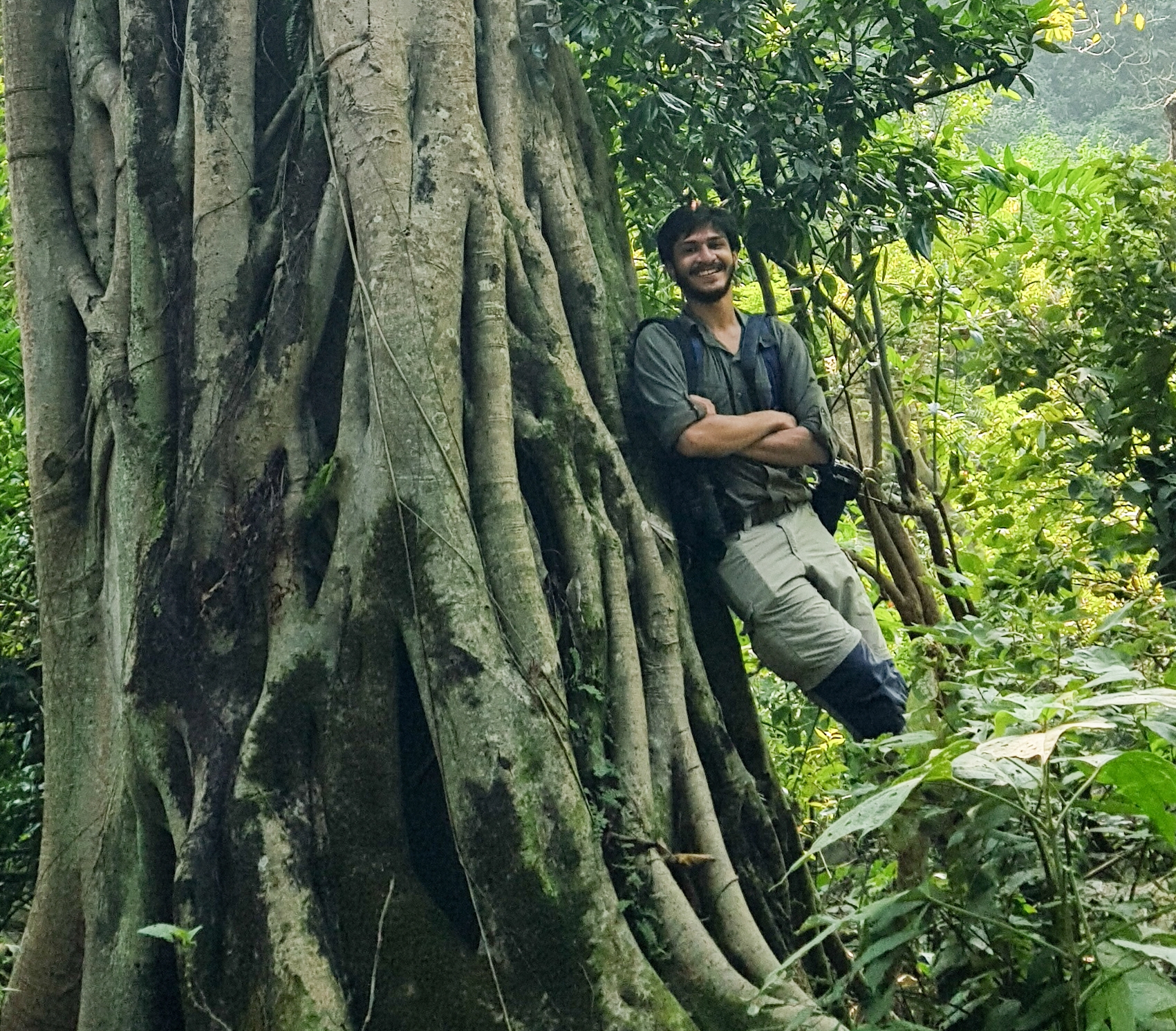Abir Jain
IGC FELLOW | Global Change Center
Ph.D. Student • Fish and Wildlife Conservation
Advisor : Dr. Haldre Rogers
Research Interests: Species interactions, seed dispersal, global change ecology, restoration, conservation, science communication
abir13@vt.edu • Google Scholar • CV • Twitter

Abir loves spending long hours in the forest and gets easily distracted by leaping frogs, tiny insects, fluttering birds, glossy fruits, or clumps of fungi on the forest floor. Glowing up appreciating the diverse forest ecosystems in India, his fascination for the natural world arose from observing, sketching, documenting, and photographing biodiversity since his childhood. Over time, he developed an abiding interest in natural history, conservation, and science communication. Having witnessed apparent socio-ecological shifts in a rapidly changing developing country has had a strong influence in shaping his curiosity to understand ecosystem responses to anthropogenic changes.
Abir is currently a Ph.D. student in Dr. Haldre Rogers' lab in the Department of Fish and Wildlife Conservation. His research will be to evaluate the effects of climate change and landscape connectivity on the seed dispersal of fleshy fruiting plants by vertebrates along elevational and latitudinal gradients. The fieldwork for this study will be conducted in the temperate forests across the Appalachian Mountains and partly in the tropical forests of the Indian Himalaya.
Prior to this, he obtained a bachelor’s degree in Zoology from the University of Mumbai and a master’s degree in Wildlife Science from the Wildlife Institute of India. Following his admiration for hornbills and fig trees, Abir’s master’s research focussed on the impact of habitat fragmentation on plant-frugivore interactions in some of the last remaining lowland tropical forest patches in India’s eastern Himalaya.
He believes being a fellow at the IGC IGEP will equip him with interdisciplinary training and the necessary skillset required to collaborate with people from diverse scientific and societal backgrounds in the realm of global change and science–policy interface to address on-ground conservation issues. He hopes to carry out long-term ecological monitoring, restoration, and biodiversity cataloging programs as well as integrate academics with effective science communication in the future.






